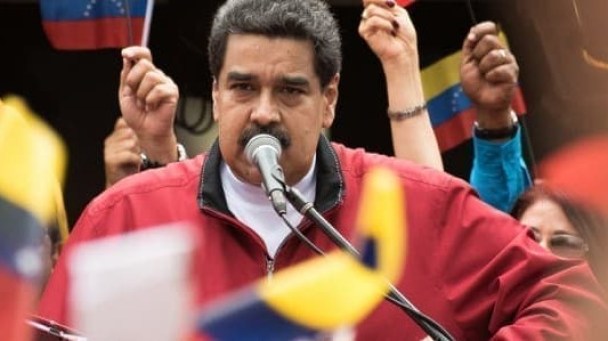
When Biden sent a delegation to Caracas in early March, rumors began to circulate that the U.S. was considering reopening relations with Venezuela as oil prices soared. Now, after a period of silence from Washington on the subject, it appears that the U.S. is going to ease its sanctions on the Latin American oil giant. At the same time that the U.S. is lifting some sanctions, Venezuela is working with Iran to help revive its oil industry. It seems geopolitics has taken a back seat to the global energy crisis as oil prices soar. The U.S. imposed oil sanctions on Venezuela under the Trump administration in 2019 due to ongoing human rights violations by President Nicolás Maduro.
By Oil Price – Felicity Bradstock
May 22, 2022
Under President Biden, there were discussions about reopening some trade links by allowing crude-for-diesel exchanges on humanitarian grounds, although this never came to fruition. However, the U.S. oil and gas firm Chevron has been allowed to continue limited operations in Venezuela in order to help avoid the collapse of the country’s oil industry. There has been speculation in recent months around whether Biden would ease restrictions on Venezuela in response to global crude shortages and a severe rise in oil prices, with several commentators highlighting the dangers of such a move.
The White House announced in May that it was reconsidering its restrictions on Venezuelan oil, entering discussions with Maduro. Biden will now allow Chevron Corp. to negotiate its oil license with state-owned oil producer Petroleos de Venezuela (PDVSA), thereby reducing certain sanctions on the oil-rich state. Although no further oil drilling or additional revenues for the Maduro government will be permitted. The move follows a meeting between US officials and Maduro in March to discuss how to move forward.
Venezuelan Vice President Delcy Rodríguez confirmed rumors about the shift in policy by tweeting “Venezuela aspires that these decisions of the United States of America pave the way for the absolute lifting of the illegal sanctions that affect all of our people.”
But the Republican opposition has been quick to criticize Biden’s actions. Senator John Barrasso, the top Republican on the Senate Energy and Natural Resources Committee, strongly opposes the easing of sanctions on Venezuela, stating “our experience buying Russian energy should have taught President [Joe] Biden that buying energy from tyrants is a dangerous proposition.”
The White House apparently responded to a request by Maduro’s political opposition to ease sanctions, although the opposition said that the request came from Maduro. The Biden Administration hopes that dangling oil industry allowances in front of the president may encourage him to make greater political concessions with the opposition, putting Venezuela on track for free and fair presidential elections in 2024.
Despite ongoing sanctions, Venezuela has been trading oil products with U.S.-sanctioned Iran in recent months, using discreet shipping methods. Venezuela has also increased its oil exports to China. Irán has been using ship-to-ship transfers to deliver oil products to Venezuela, as well as other clandestine methods. Although Venezuela has around 303 billion barrels of proven oil reserves, its crude is extra-heavy and requires condensate to dilute it, which has been in short supply.
Iran has also shipped gasoline and equipment to Venezuela to support the reparation of PDVSA’s rundown refineries. This month, the state-owned National Iranian Oil Engineering and Construction Company signed a $116 million contract to restore the EL Palito 146,000-bpd refinery to restart production. This builds on the agreement between the two countries, established in 2021, to swap Iranian condensate for Venezuelan heavy crude.
…
Read More: Oil Price – Geopolitics takes a back seat as Biden drops sanctions on Venezuela
…

